

Events that lead to the creation of the Big Book Awakening Workbook & Fellowship of the Spirit Conferences
The following collection of talks resulted from listening to Dan Sherman relating the events that led to the creation of his Big Book Awakening Workbook. From listening to his talk I started on a journey of learning more about those who played a role in how it came about. The narratives on this page were gleaned from listening to the talks on this page. I identified three common threads that are mingled among these talks:
"The Sponsorship Lineage" also known as working with others
When Dan gave his sponsorship lineage, I began to track down talks given by each of the individuals he mentioned and to listen to each. The project grew as different speakers mentioned others that had impacted their lives. This effort soon evolved into months of listening to these talks, most became favorites which have been listened to numerous times. The talks share a common message, listen and see if you also hear it. Some of Dan's facts concerning the events in Winnipeg and Denver were inconsistent with those who were directly involved in Winnipeg or Denver. Some speakers would not call themselves "sponsors", because the word "sponsor" did not appear in the first 164 pages of the Big Book. That word is used in other AA literature, although some did not accept the 12x12, sticking solely with the Big Book as their textbook. Each speaker has a unique personality and each shares their journey through their personality. What one speaker states should not imply that all in this collection hold or accept the same thoughts. Many of the speakers stated "if you hear something I say that is not in the Big Book then do not accept it". Listening to a speakers early talks and then a more recent one highlights those things that have worked for them over time on their journey.
The chain begins with Bill Wilson working with Dr. Bob Smith, the
same heritage shared by all living this way of life.
Dr. Bob Smith sponsored both Paul Stanley and Earl Treat.
Bill Wilson sponsored Tom Powers. Tom Powers was the first sponsor
of Paul Martin.
Paul Stanley impacted the life of Paul Martin.
Earl Treat also sponsored Paul Martin, at a different time in his life.
Paul Martin sponsored Gary B.
Gary B sponsored Don Pritts and Bob O.
Don Pritts, from this group, sponsored Joe Hawk, Mark Houston, and
Don C.
When Joe Hawk moved from Denver to Santa Monica CA he sponsored Dan Sherman.
Although not his sponsor, Joe guided Clint Hodges through the Big Book, line-by-line when Clint had
20+ years of sobriety.
Dan Sherman authored the Big Book Awakening Workbook.
Tyla C brought Mark Houston to San Diego to present a Big Book
Weekend for a Women's Retreat. This retreat was the beginning of BBA in San Diego.
Mark Houston
sponsored Tyla C.
(note: the roots of AA evolved from the Oxford Group. For information on Bill W, Dr Bob, Oxford Group, and early pioneers see the
history page on this site)
The Common Denominator
The following event is the common point shared by all on this page, even if they were not participants in it or even alive at the time.
During the 1975 AA International Convention in Denver a Canadian, Mac Cheater, led a
conference workshop
on working with those who could not maintain sobriety. Mac's story began when two men, from his home group, asked for his help to find a way
to maintain their sobriety. One of these men, frustrated that he could not stay sober wondered if he was missing something that the successful
members knew. He thought if he could just understand what the Big Book was really saying he might be able to maintain consistent sobriety. The
men asked for a meeting just for "slippers" so it would keep the focus on their issue without judgment. Mac agreed to help and they began
meeting early on Sunday mornings, hoping regular AA members would not attend. This group became known as the "Silver Slippers". The group
started at the title page and they read line-by-line though the book. They began taking turns reading, asking questions, and discussing
what the book was saying. When the book gave an instruction, the group acted on it together during the meeting. If it said to pray, they would
kneel and pray as a group. This format began working for them, and soon, others asked to joined the Sunday morning group. You can listen to
Mac's 1975 workshop here.
Attending Mac's workshop was a number of local AA men from the Denver Young People's AA Group. Intrigued by the workshop, the group got
Mac to come to their hotel room where they talked with him that night. The result was the decision to start a meeting based on the Silver
Slippers' format. This Denver group formed with 14 people and began the process of going line by line through the first 164 pages of the Big
Book. Following the Silver Slipper's example they took each action together as a group. The group met once a week in a basement of a house owned
by Jay Lebie, in a part of town called "Goat Hill". Jay Lebie has passed (the last name spelling may be incorrect). The members fondly recall
chasing goats off the front porch to reach the front door. One group member, Eddie Durkin, decided he would not accept Step 2 and walked out
of the meeting and headed to a bar. The next morning the group was informed Eddie got drunk, and passed out in doorway of a store near the bar.
By the time he was discovered the next morning he had frozen to death. The remaining 13 finished the process and each one has maintained
their sobriety until today or until they died. Some group members mentioned are
Gary B, Don Pritts, Bob O,
Big Frank McKibben, Jay Lebie are mentioned in the talks.
Creation of the Big Book Awakening Workbook
When Joe Hawk, sponsored by Don Pritts, moved from Denver to Santa Monica, he began to sponsor Dan Sherman. Dan is the author of the Big Book Awakening Workbook. As Dan worked through the Big Book with Joe, be would write his questions directly into his Big Book. He did this because he initially misunderstood Joe's directions to write down questions before the next work session. Joe noticed this but did not correct Dan as the method was working for Dan. Once Dan began to sponsor others, he formed a work group to take them through the Big Book together. One group member struggled with reading and organizing thoughts. In an attempt to help, Dan gave each person a copy so the man struggling would not feel called out. As the group progressed, they made suggestions and corrections to the notes, which evolved into a guidebook over time. The edited version became the now-book version of the Big Book Awakening Workbook. Joe Hawk and Mark Houston began taking Dan's Workbook to the workshops they gave nationwide. These were offered to the participants at the seminars as something that would guide them after the weekend was over. Initially, a set of copied sheets stapled together, a taper at one of these events, had them bound together with a plastic spline. This version was eventually bound into a soft copy version that made the workbook attractive, increasing the guide's popularity. The intent of the Big Book Awakening Workbook is to guide the process, not replace the text of the Big Book. More information on the BBA Workbook and Workshops.
Beginnings of the Fellowship of the Spirit Conference
There are others, listed on this page, that are branches off this main tree but followed the same method of working the steps from the Big Book, not necessarily using the Big Book Awakening Workbook. For the most part Colorado's major convention each year was the State Convention, it was a large event with 1500+ attendees. The desire to have a more intimate time of fellowship stirred the desire to create a smaller conference that would provide fellowship for the whole family. A group got together to work out details. Mickey M & Marie M of Denver along with Don Pritts put up the initial funds to secure a venue. Mickey shared the same home group with Don Pritts and others involved. The name for the 1st conference was the "Breckenridge Conference" with the theme "Fellowship of the Spirit". At Don Pritts' insistence, workshops on the 12-steps were included. The theme of the first conference stuck. During their speaking engagements, Don Pritts & Joe Hawk started announcing the first conference, which resulted in 225 people from 25 different states attending that first year. As word spread of the conference, people from all over the US and some internationally registered and attended. Since that first conference, others have cloned the format worldwide. The talks by Mickey M include many more details about the history of the conference.
The Collection
This collection includes an overview of each person mentioned in the sponsorship lineage and if available, a collection of their talks, workshops, and writings. They also include additional details to the events described above. Persons that were either involved or mentioned during the talks are also included. The narratives on this page were gleaned from listening to the talks on this collection.
William Griffith Wilson (1895-1971)
Bill was born in Vermont and raised by his grandparents. When Pancho Villa invaded the United States in 1916, Bill was activated, along with his entire school class, in the Vermont National Guard but was not deployed to the US Border. The next year he became a commissioned artillery officer. During his military training in Massachusetts he took his first drink. This he wrote was "the elixir of life". Soon he was drinking until he would pass out. In 1918 he married Lois, shortly before he was deployed in World War I as a 2nd lieutenant in the Coast Artillery and stationed in England. Returning after the war his drinking evolved and as the result of it, the Great Depression, and his own depression, he and wife Lois found themselves without a solution for living. Eventually Bill discovered the solution to his drinking was through a spiritual experience, involvement with the Oxford Group, and working with fellow drunks. In the Big Book the word sponsor never appears within the first 164 pages. Bill called many people over the years his sponsor or advisor. He sometimes referred to Ebby, probably his attempt to honor Ebby who was the first to bring him the message. Over the years he took console from many, Bob Smith, Anne Smith were early influences. Spiritually he named Father Ed and Rev Sam Shoemaker as advisors. The Bill Wilson collection on the history page on this site contains the collection of talks by Bill.
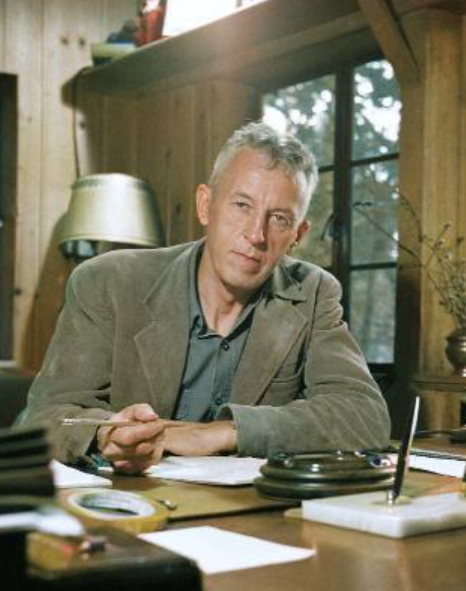
Dr Robert Holbrook “Bob” Smith (1879-1950) - Co-Founder of AA
Co-Founder of AA, also known as Dr. Bob, was an American physician and surgeon who founded Alcoholics Anonymous with Bill Wilson. Bob started drinking as a young adult and continued to drink heavily during the early years of his marriage and professional career. As his alcoholism progressed steadily, he began a desperate search for an answer to his problem. With strong encouragement and support from his wife, Anne R. Smith, he started attending meetings of the Oxford Group, a Christian evangelical fellowship, founded by Dr. Frank N. D. Buchman in 1919 and considered to be a forerunner of AA because of its emphasis on self-examination, acknowledgement of character defects, restitution of harm done, reliance on God, and working with others. In May of 1935 Bob was visited Bill Wilson, who was on a business trip to Akron. Bill on the verge of a relapse into alcoholism sought out an other alcoholic who was involved in the Oxford Group. The two became friends and were able to support one another in their struggles with alcohol addiction. They began reading the Bible together, offered each other support, engaged in long discussions and reviewed Oxford Group ideas, all of which were influential in the development of AA and its pioneering 12-step recovery program. Dr. Bob died of cancer at City Hospital in Akron, Ohio, at 71 years of age, on November 16, 1950. The Dr Bob collection on the history page on this site contains the collection of talks by Dr Bob.
"Let's not louse it all up with Freudian complexes and things that are interesting to the scientific mind, but have very little to do with our actual AA work. Our 12 Steps, when simmered down to the last, resolve themselves into the words love and service. We understand what love is and we understand what service is. So let's bear those two things in mind."
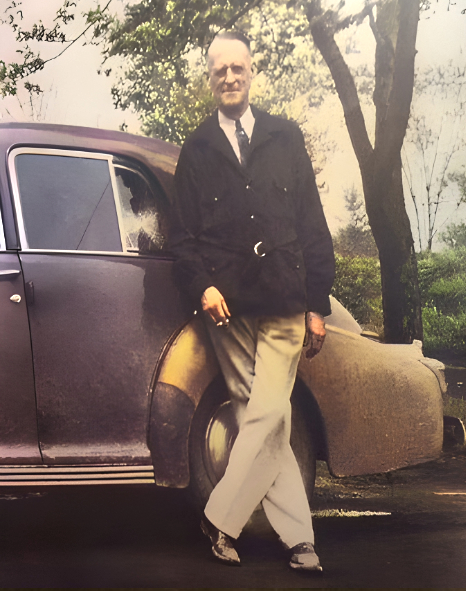
Paul Stanley (AA) of Akron OH (1895 - 1953)
Paul was one of the early members of the group in Akron. Paul took his last drink on July 2, 1936. Dr. Bob would stop by his house on Tuesdays and Thursdays to drink coffee and discuss recovery. At first, their discussion topic was honesty, but after several meetings, Bob suggested Paul get honest with himself. The topic changed to faith in God. Their relationship evolved into what is now called sponsorship. Paul threw himself into doing 12th-step work. He visited Clarence Snyder in the hospital several times. Paul also led his brother Dick Stanley into AA. Dick's story, "The Car Smasher," in the first edition of the Big Book, was rewritten and renamed "He Had to be Shown" in the later editions. Paul's story in the first edition was named "Truth Freed Me!". Paul gave a talk in 1949, which was heard by Paul Martin. The talk he heard that day shaped the rest of his life. Before his accident, Paul sponsored a young man named Paul Kiebler who lived until 1989. We can listen to some of Paul Kiebler's talks, given the last few years of his life. In some of them he gives many details of how Paul Stanley worked with him, and what it was like in the early days of the Akron group with Dr. Bob, and how they used the Four Absolutes when taking the steps. You can find Paul Stanley's full AA bio at the aainthedesert.org site.
Earl Treat (AA) of Chicago (1893 - 1962)
Earl grew up in the Akron area. In 1930, Earl moved to Chicago and was entirely in his alcoholism, which caused his wife, Katie, to call his father and tell him to get him.
His father took him back to Akron. For five years, he bounced back and forth between Chicago and Akron to sober up. In January of 1937, back in Akron with his father to sober
up, his father told him about the group in Akron who had the same problem but had found a way to stay sober. Earl knew two of them, one of them Howard, an ex-doctor, whom he
had once seen mooching a dime for a drink. He didn't think he was that bad and would not accept their assistance, still insisting he could do it on willpower. His solution
was to drink nothing for a month and, after that, only beer. Several months later, his father was back in Chicago to pick him up again, but his attitude had changed this time,
and he was willing to talk to the men in Akron. When they got to Akron, they routed Howard out of bed. He spent two hours talking to Earl that night. He was allowed to attend
his first meeting after meeting with eight or nine Akron men. Bill Dotson,
AA Number Three, chaired that first meeting. There were eight or nine alcoholics at the meeting and seven or eight wives. There was no Big Book yet and no literature except various
religious pamphlets. The meeting lasted an hour and closed with the Lord's Prayer. Then they had coffee and doughnuts and more discussion until early morning. Earl stayed in Akron
for two or three weeks and spent much time with Dr. Bob, who took him through the steps in one afternoon. Dr. Bob helped with the moral inventory by pointing out some of his
flawed personality traits or character defects. Earl wished every alcoholic could benefit from this type of sponsorship today. He returned to Chicago in 1937 and started AA there. After
a time, he got angry when his wife criticized him for drinking coffee and smoking, over this situation he slipped. Earl is the heavy smoker and coffee drinker mentioned on page 135
in "The Family Afterwards." When he slipped, he realized that the alcoholic must continue taking his own inventory daily if he expects to get well and stay well.
Dr. Dan Craske began referring prospects to him, and another doctor in Evanston referred a woman. Sylvia Kauffmann, the author of the story "The Keys to the Kingdom,"
was this woman. Earl suggested she go to Akron. There, they dried her out and explained the program to her, after which she returned to Chicago to work with Earl. Earl urged
Bill Wilson to codify the AA experience, resulting in Bill writing "Twelve Points to Assure Our Future," first published in the April 1946 AA Grapevine. These are now known
as the long form of the traditions. Earl later urged him to shorten them to the Twelve Traditions as we know them today. Earl died on October 16, 1962, with more than twenty-five
years of sobriety. His story "He Sold Himself Short" was in the 2nd and 3rd editions of the Big Book.
You can also find his full AA bio at the
aainthedesert.org site
and at the aaagnostica.org
site.
One of the men Earl sponsored was Paul Martin.
(note: There are a few differences between the story in the book and the one above.
His book story states his father was an alcoholic who died in 1901, when he was eight years old. His mother did remarry so it might of been his step-father
who kept taking him for help.)
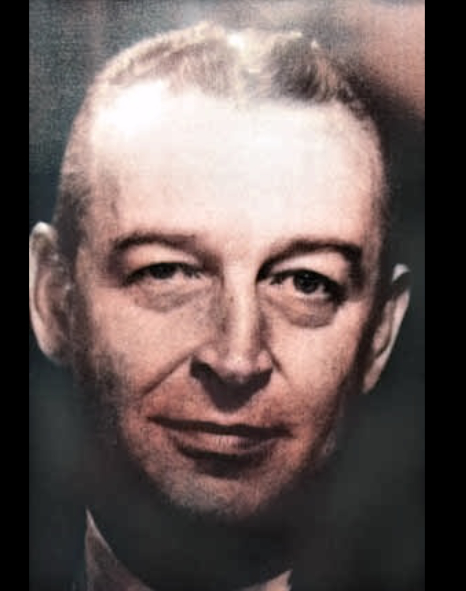
Tom Powers (AA) of Chappaqua NY (1911-2005)
Tom spent most of his career in Advertising Agencies in Chicago, Detroit, Cleveland, and New York City. Tom attended his first Alcoholics Anonymous meeting in White Plains,
New York, in October 1941. After a few years of successful sobriety in AA, he struggled with AA's use of God and slowly stopped attending AA. Tom relapsed multiple times was
hospitalized many times, but remained a hardened alcoholic and drug addict. For four years, he battled his addictions without success until Easter weekend of 1946, when he had
a spiritual awakening. Returning to AA, with Bill Wilson as his sponsor, Powers gained sobriety in October 1946. He became a circuit speaker, sharing the importance of conscious
contact with a Higher Power. When Bill started writing the book "The Twelve Steps and The Twelve Traditions," he recruited Tom and magazine editor Betty Love to assist in the editing.
They would meet in "At Wits End," the office Bill built behind his house called "Stepping Stones" in Bedford Hills, NY. Tom also edited AA Comes of Age and a few other AA pamphlets.
Tom always considered Bill Wilson his sponsor, although he disassociated himself from Bill over a disagreement in 1958. Some members still consider Tom controversial due
to statements made in interviews after Bill Wilson's death. After his break with Bill Wilson, he moved to Hankins, NY. He established the East Ridge Clinic in Callicoon, NY,
in 1961. Tom applied the Twelve-Step Program to treat addictions such as drugs, eating, and sex. The East Ridge principles of recovery evolved into a recovery community known as
All Addicts Anonymous (AAA), that still operates today. In 1979, his book
"Invitation To A Great Experiment" (Doubleday, 1979) was released. His work with AAA has been carried on
by his son. Gary B, during his
2008 Salt Lake City talk, states Tom Powers was
Paul Martin's first AA sponsor.
"For the first time in all my years in AA, I took the card in my hand and read the Twelve Steps carefully, slowly, trying to understand what they are saying. I began to do this
every day. I also read the Big Book, studying it as what it is: a textbook on the application of the Steps."
from The Program Is A Life Jacket, by Tom Powers Sr.
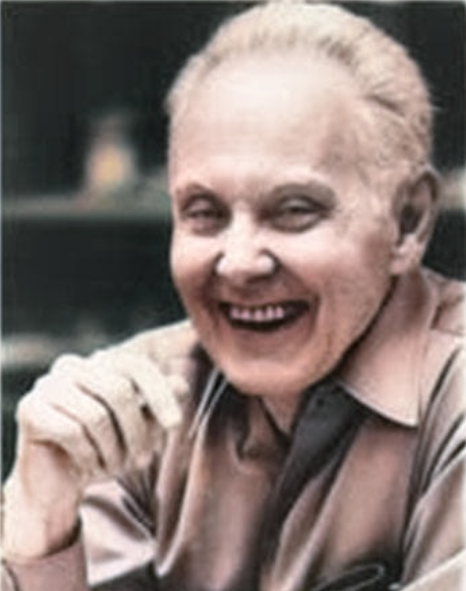
Paul Martin (AA) of Riverside IL (1922-2009)
When he was just 25, in 1947, Paul became sober. Paul grew up in Southern Georgia. Over his lifetime, he was a WWII Navy pilot, a professional wrestler,
and a boxer, ending up as a writer. His articles appeared in many magazines and were a staple in the Chicago Sunday Tribune Magazine. He also
authored many books. Personal friends with Bill and Lois, he was their house guest several times at Stepping Stones. Paul loved to laugh,
and his talks were full of jokes while his message was "the path to recovery is by daily working the steps." In 1949, Paul heard a talk by
Paul Stanley, whom Dr. Bob sponsored. Paul Stanley's talk changed his life, at that point Paul began to continually work the steps on a daily basis.
Gary B, in his 2008 Salt Lake City talk,
states that Tom Powers was Paul's first sponsor in AA. Other speakers mention Paul was
sponsored by Earl Treat.
Both versions are probably correct over Paul's lifetime.
Paul lost his battle with cancer, he died in 2009 with 62 years of sobriety. His obituary-eulogy can be found online at the
Chicago Sun-Times site.
One of the many men Paul Martin sponsored was Gary B. Gary met Paul in 1973
when Paul spoke at the Wyatts AA Group meeting in Denver.
Big Frank McKibben told him Paul was one speaker he should not miss. Gary recalls the talk: "I left the meeting knowing that I had just met a man who believed
that the 12 Step program of AA was indeed "sufficient" for alcoholics and anyone else who might be motivated to go to the lengths we need." In 1985, Gary asked
Paul to be his sponsor. Details of this relationship are in Gary's section on this page.
"Recovery occurs by working the 12 Steps, not by attending meetings" - Paul
"The same steps that got me sober, are the same steps that will heal any situation in my sobriety" - Paul
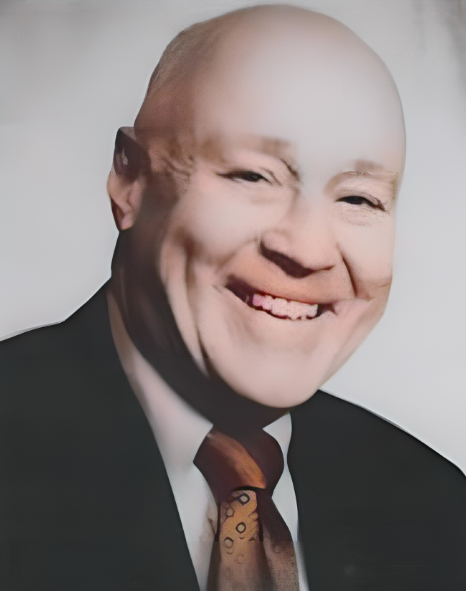
Mac Cheater (AA) of Winnipeg Canada (1922-1983)
Mac (Neil MacKenzie Cheater) organized the Golden Slippers in Winnipeg, a group for chronic "slippers." The group met once a week
and studied/worked the Big Book line by line to stay sober. Mac and other group members presented a workshop at the 1975 AA International Convention in Denver. This meeting
sparked a group attending the Denver Young People's Group to incorporate the same method of working the steps through the big book. This group included
Don Pritts and
Gary B. Mac, who served as a Trustee for AA, is considered the father of AA in Canada.
If not, then he certainly was a pioneer in Canadian AA. Mac has left an example of a life of service and sponsorship driven by the love and care he gave to others.
"The study of the Big Book must be a Spiritual process not an academic process" - Mac Cheater
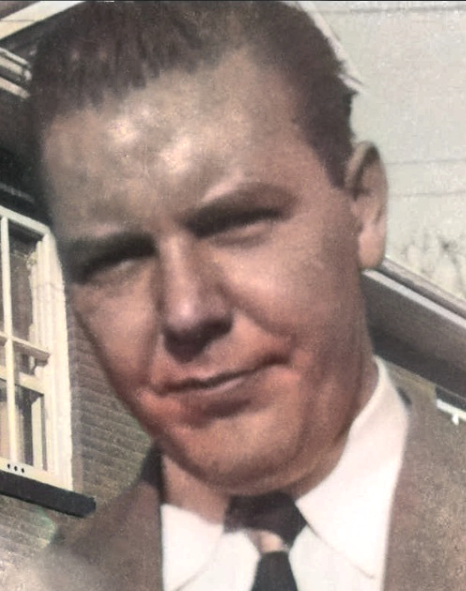
Gary B (AA) of Indianapolis
Gary grew up on a farm in Cheyenne, WY. He started drinking as a teenager. He joined the military but was discharged after six months. Gary returned home and
married his high school girlfriend; they had three girls. As he continued drinking, his life fell apart. At 24, Gary's father-in-law put him on a bus and sent
him to a rehab facility. He got his introduction to AA and became sober in 1964. Returning sober, he was provided with an opportunity to get a college degree
in accounting. After completing school in 1968, he moved to Denver to work in the oil industry. In Denver, he started attending the Denver Young People Group.
Gary was sponsored by
Paul Martin, and Gary sponsored Don Pritts
and Bob O.
Gary was one of the participants who worked the steps together with a group of 14 in Denver, going line by line through the Big Book, all of whom are still sober
or who have died sober. Gary moved to Indianapolis in 1977 and is a Dignitary Sympathy AA Group
member in Indianapolis. With over 20 years of sobriety, Gary found
himself in trouble. In 1985, he contacted Paul Martin, who became his sponsor. Paul had Gary work a 4th step again. Paul recruited a group of men from his group,
the LaGrange group, Who each shared their 5th step with Gary first, and then Gary shared his 5th step in return. This process resulted in Gary sharing his 5th step
nine times, each time with a different person, over the weekend. At the end of the weekend, the group met together and assisted Gary in writing his amends list.
Gary has been a circuit speaker for many years. He was involved in starting the first Fellowship of the Spirit Conference in 1993 in Breckenridge, Colorado.
In many of his talks, Gary refers to a Denver group member, Ernie. Ernie disappeared and then reappeared transformed. Ernie, during a geographical relocation
solution attempt, stumbled across Bob White, who had taken him back through the steps
which changed Ernie's life. This is mentioned as many of Bob's talks are available on this site.
"If your are trying to live a spiritual life and you tell a lie in one part of your life, it will impact every other area of your life" - Gary B
Don Pritts (AA) of Aurora CO (1934-2005)
Don grew up in an average family in the Denver area. From an early age, he felt he was different from everyone else, no matter what group he was in. His first drink at 11 made him sick. He started drinking at 15 in high school and thought he had found the cure for his insecurities. Don was the only alcoholic in his family. Don joined the Navy at 19 but served time in a military prison for repeated offences of being absence without leave, due to his drinking activities. The following events may not be chronological as they are gleaned from many of Don's talks. Over his life, he served time in 3 penitentiaries. Discharged, he moved to the San Francisco area. He attended Berkeley for a time, where he became involved in numerous criminal activities, including burglary. He moved back to Denver, married, and had two sons. His first wife left him with two small sons to raise while still battling alcoholism. He traveled the country with his sons until they reached school age when he returned to Denver. During the 1966 week of Christmas, his life came to a breaking point. His mother told him he could not attend the family Christmas; she could no longer stand to see him killing himself. Federal agents raided his apartment, serving drug smuggling warrants and parole violations the day after Christmas. During the raid, his 4-year-old son was nearly shot by an agent. He was arrested and charged with nine felony counts, which carried three years to life. The courts sent his sons to foster homes. He got a plea bargain, which resulted in serving time in a Colorado State Penitentiary for 18 months. Other inmates led a 5-week 12-step study group in prison, which met every Saturday and Sunday. Don completed this course, which qualified him to attend the weekly AA meetings brought to the prison by civilian AA members from the community. Convinced of his lack of power to live life, Don became sober in 1967 and joined AA 5 months later. He started making amends while in prison, writing letters to those he had harmed. Returning to Denver, he attended AA meetings and involved himself in service and AA activities. He eventually started attending the Denver AA Young People's Group on Sunday nights. He met Mac Cheater from Winnipeg, Canada at the AA International Conference in Denver in 1975. Mac presented a workshop about his "Silver Slippers" home group and how alcoholics who had not found continued sobriety were doing so by working the steps directly from the Big Book. Mac's talk profoundly impacted Don's approach to working the 12 Steps with others. He eventually married and became the father to two stepdaughters. He worked as a truck driver and a roofer. At one point, he moved to Southern Pines, NC, for work before returning to Aurora. His service work included serving as a WSO AA Alcoholic Delegate and Trustee. He was part of the team that took AA to Russia in the late nineteen-eighties. Don died of cancer in 2005 and has left a significant mark on persons in all types of recovery that continues today. He gave his last AA talk the night before he passed. Mark Houston stated over 1200 people attended Don's memorial service, many who traveled internationally.
Don, his wife, and Mickey & Marie M started Fellowship of the Spirit Conference (a.k.a. FOTS) in 1993 in Breckenridge Colorado. Since that first conference others have cloned the FOTS format and it has spread across the US and world.
Don was sponsored by Gary B. Four of the men Don sponsored, were Bob O, Don C, Joe Hawk, and Mark Houston.
(another speaker recommended listening to is Frank M
of Orland Park IL - Frank, in some of his talks, suggests to his audiences to listen to talks by Don Pritts. When Frank's group started holding beginners meetings,
working line by line through the Big Book, the retention rate of newcomers exploded.)
"Truth shared without love, is cruelty" - Don Pitts
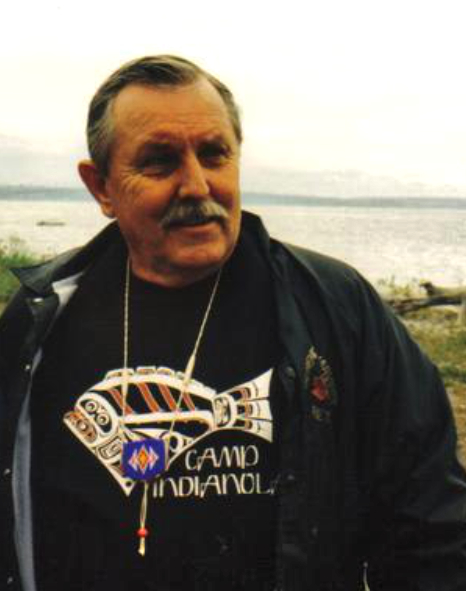
Bob O (AA) of Centennial CO
Bob is the son of a violent alcoholic and a mother with mental issues. He grew up in the Madison, WI area. His father left the family, and his mother struggled to care for Bob and his younger sister. When Bob was ten, his mother could no longer care for both children, so she sent him to live with various relatives and foster homes. Bob discovered the "alcohol solution" when he was 17. On the street drunk, two local policemen beat him up. He shot up the town's electric plant for retribution and knocked out the town's electrical power. The police, once they identified him as the culprit, arrested him during his high school football practice. Still a senior in high school, the judge gave him the choice of spending two years in the state penitentiary or joining the Navy for four years. In the Navy, his alcoholism flourished. He was a forward beach observer during the US invasion of Lebanon in July 1958, directing incoming US artillery. Once discharged, he attended the University of Wisconsin and continued to work on his alcoholism. With a fresh college degree, he became a bill collector for a loan shark in the projects of Chicago. Now drinking a fifth each day, he moved back to Wisconsin, went door to door collecting on loans, and then worked for a paper mill as a salesman. Here, he became sober in 1973. Hired by Kraft Foods, he moved to Denver. In Denver, he went to the York Street AA group and met Don Pritts, who became his sponsor. He was one of the 14 who worked the steps together as a group, formed after Mac Cheater at the 1975 AA International Convention in Denver. He is a member of the Happy Way Group in Englewood CO, and his sponsor is Gary B. He has been a circuit speaker for many years.
"Big" Frank McKibben (AA) of Denver CO (1929 - 2006)
Frank got sober on 6 March 1966. Frank grew up on a sheep ranch in Colorado. Frank started drinking as a teenager, then in college. Frank was a sheep rancher and a trial attorney in Denver. Frank drank his way through Law School, was a black out drinker, an atheist, and fired from his first job as an Attorney. Frank became sober at the York Street AA club in Denver. Frank believed in working through all the steps at least once each year. Frank states he is not a circuit speaker. Frank was Don C's first sponsor. Don recalls in his Toronto talk the following about Frank: Frank would not accept the 12x12, only using the Big Book. Frank was upset with how things were going in his AA group, so he started an underground meeting in his basement for the people he sponsored. This group was closed to outsiders, and they studied and practiced living out of the Big Book. They met for seven years, closed and underground, before they opened the meeting to others to participate. Other area members nicknamed Frank's underground group the "God Squad." After Frank's group emerged from the netherworld, they started sponsoring others, taking them through the steps - the same way they had. This once-underground group had a profound impact on many people. Joe Hawk and Mark Houston mention Big Frank multiple times in their talks, Mark considered Frank a mentor. Big Frank was well known in the AA Denver area, he was a friend to Gary B, and Don Pritts, and his message impacted both Joe Hawk and Mark Houston in their early years of sobriety in Denver. Frank also sponsored Mike S of Denver. Big Frank died of cancer on February 14th, 2006.
"We recover by the Steps we take, not the meetings we make" - Big Frank
due to the size of this page it has been divided into 2 parts
- click here to jump to the 2nd part

